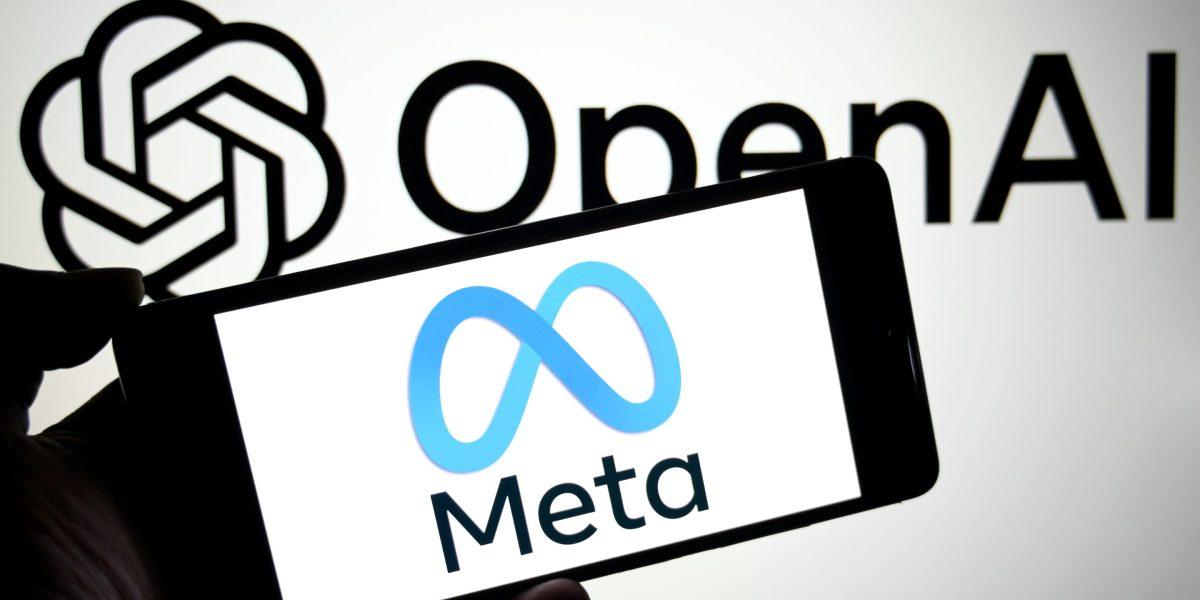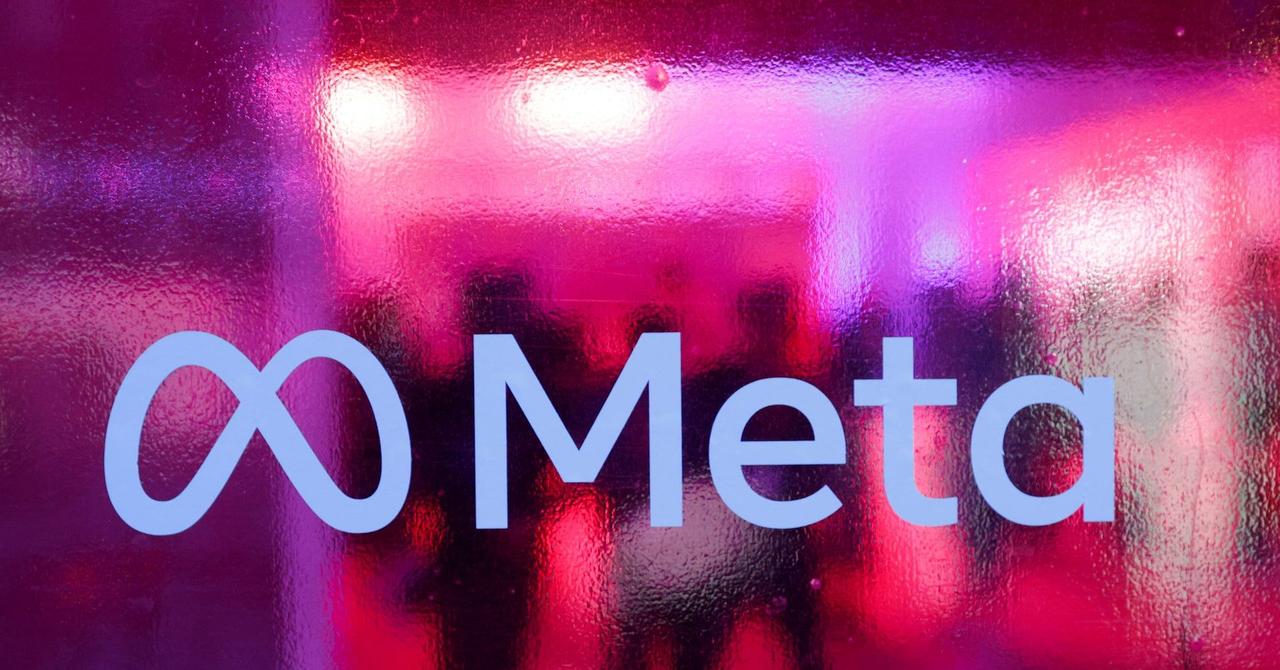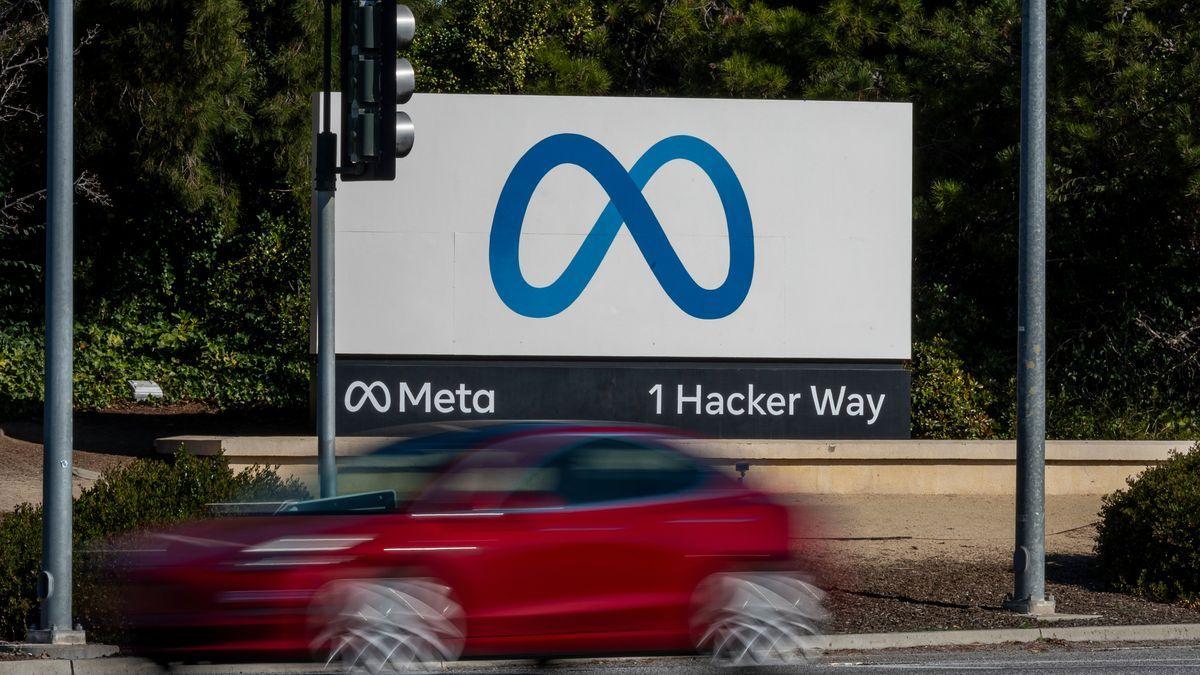Meta Poaches Top AI Talent from OpenAI to Bolster Superintelligence Team
7 Sources
7 Sources
[1]
Meta hires key OpenAI researcher to work on AI reasoning models | TechCrunch
Meta has hired a highly influential OpenAI researcher, Trapit Bansal, to work on its AI reasoning models under the company's new AI superintelligence unit, a person familiar with the matter tells TechCrunch. OpenAI spokesperson Kayla Wood confirmed to TechCrunch that Bansal had departed OpenAI. Bansal's LinkedIn page says that he left OpenAI in June. Bansal has worked at OpenAI since 2022 and was a key player in kickstarting OpenAI's work on reinforcement learning alongside OpenAI co-founder Ilya Sutskever. Bansal is listed as a foundational contributor on OpenAI's first AI reasoning model, o1. Bansal could offer a significant lift to Meta's AI superintelligence lab, which also features leaders such as former Scale AI CEO Alexandr Wang, former GitHub CEO Nat Friedman, and Safe Superintelligence co-founder Daniel Gross. Meta currently does not publicly offer an AI reasoning model as part of its Llama family of open models. In recent months, Mark Zuckerberg has been on a hiring spree to build out Meta's new AI team, offering $100 million compensation packages to top researchers who join his company. It's unclear what Bansal was offered to join in this deal. A Meta spokesperson declined to comment.
[2]
Meta reportedly hires four more researchers from OpenAI | TechCrunch
Looks like Meta isn't done poaching talent from OpenAI. Earlier this week, TechCrunch reported that Meta had hired influential OpenAI researcher Trapit Bansal, and according to The Wall Street Journal, it also hired three other researchers from the company. Now The Information is reporting four more Meta hires from OpenAI: Researchers Shengjia Zhao, Jiahui Yu, Shuchao Bi, and Hongyu Ren. This hiring spree comes after the April launch of Meta's Llama 4 AI models, which reportedly did not perform as well as CEO Mark Zuckerberg had hoped. (The company was also criticized over the version of Llama that it used for a popular benchmark.) There's been some back-and-forth between the two companies, with OpenAI CEO Sam Altman suggesting that Meta was offering "$100 million signing bonuses" while adding that "so far, none of our best people" have left. Meta CTO Andrew Bosworth then told employees that while senior leaders may have been offered that kind of money, "the actual terms of the offer" were more complex than a simple one-time signing bonus.
[3]
Meta hires four more OpenAI researchers, The Information reports
June 28 (Reuters) - Meta Platforms (META.O), opens new tab is hiring four more OpenAI artificial intelligence researchers, The Information reported on Saturday. The researchers, Shengjia Zhao, Jiahui Yu, Shuchao Bi and Hongyu Ren have each agreed to join, the report said, citing a person familiar with their hiring. Reporting by Harshita Meenaktshi in Bengaluru; Editing by Daniel Wallis Our Standards: The Thomson Reuters Trust Principles., opens new tab Suggested Topics:Artificial Intelligence
[4]
Meta taps four OpenAI researchers for Superintelligence team
The company on Friday signed on Jiahui Yu, Shuchao Bi, Shengjia Zhao and Hongyu Ren, according to people with knowledge of the matter, who declined to be named discussing unannounced hires. They join several other AI industry leaders, including Daniel Gross and Nat Friedman, heading to Alexandr Wang's new team at the social networking giant. Read More: Zuckerberg Is Personally Recruiting New 'Superintelligence' AI Team at Meta At OpenAI, Yu led the Perception team, while Bi, Zhao and Ren were also notable researchers at the company. The departures underscore the mounting competition for talent in the generative AI landscape as key players are lured by multi-million dollar hiring packages. None of the researchers responded to requests for comment. Meta declined to comment and OpenAI didn't immediately respond to a request for comment sent outside regular business hours. The Information reported on the hires earlier Saturday.
[5]
Meta recruits top OpenAI talent to build new reasoning models
Meta hired Trapit Bansal, a former OpenAI researcher, to advance its AI reasoning models within its new AI superintelligence unit, confirmed by sources familiar with the matter and an OpenAI spokesperson. Trapit Bansal joined OpenAI in 2022, playing a significant role in initiating the company's work on reinforcement learning alongside co-founder Ilya Sutskever. He is also recognized as a foundational contributor to o1, OpenAI's initial AI reasoning model. Bansal's LinkedIn profile indicates his departure from OpenAI occurred in June 2025. His addition is anticipated to bolster Meta's AI superintelligence lab, which includes figures such as Alexandr Wang, former CEO of Scale AI. Meta is also reportedly seeking to incorporate Nat Friedman, former GitHub CEO, and Daniel Gross, co-founder of Safe Superintelligence, into this unit. The intention is for Bansal to aid Meta in developing a frontier AI reasoning model capable of competing with established industry leaders, including OpenAI's o3 and DeepSeek's R1. Currently, Meta does not offer a publicly accessible AI reasoning model. Mark Zuckerberg has pursued an aggressive hiring strategy in recent months to expand Meta's AI team. This strategy has involved offering compensation packages valued at $100 million to attract top researchers. The specific terms of Bansal's compensation package were not disclosed. This recruitment drive has successfully secured notable AI research talent. In addition to Bansal, three other former OpenAI researchers, Lucas Beyer, Alexander Kolesnikov, and Xiaohua Zhai, have joined Meta's AI superintelligence team recently, as reported by The Wall Street Journal. Bloomberg also reported that Jack Rae, previously with Google DeepMind, and Johan Schalkwyk, formerly a machine learning leader at Sesame, have also joined Meta's AI team. Meta wins AI copyright fight with authors Meta reportedly attempted to acquire several startups possessing advanced AI research capabilities to further staff its new AI unit. These included Safe Superintelligence, founded by Ilya Sutskever; Thinking Machines Labs, associated with Mira Murati; and Perplexity. However, discussions for these acquisitions did not advance to a definitive stage. Sam Altman, CEO of OpenAI, stated in a recent podcast that Meta has been attempting to recruit top talent from his company. He asserted that "none of our best people have decided to take him up on that." A Meta spokesperson declined to comment on these specific claims. AI reasoning models represent a crucial development area for Meta's AI superintelligence team. Over the past year, OpenAI, Google, and DeepSeek have released high-performing AI reasoning models, demonstrating advancements in software capabilities. These models enhance AI performance in benchmarks and real-world applications by utilizing additional time and computing resources to process problems before generating solutions. Meta's AI superintelligence lab is poised to become a central internal group supporting various company products, similar to Google's DeepMind unit. Meta is also engaged in an initiative to develop AI agents for business purposes under the leadership of Clara Shih, former Salesforce CEO of AI. The development of competitive agents necessitates robust, frontier AI reasoning models to power them. The integration of Bansal and other key AI researchers is intended to accelerate Meta's progress in this competitive field. OpenAI's impending release of an open AI reasoning model in the coming weeks may intensify competition for Meta's open AI offerings.
[6]
Meet Trapit Bansal, Meta's new AI superintelligence team hire - Is Meta poaching top talent from OpenAI?
Meta has made another bold move in the AI talent wars by hiring Trapit Bansal, an AI researcher who played a pivotal role in shaping OpenAI's early efforts in AI reasoning and reinforcement learning, according to a report by TechCrunch. Bansal, who joined OpenAI in 2022, is now among the most publicly visible names to leave the firm and join Meta's brand-new AI superintelligence team, an initiative that's fast attracting all the top minds in the field of AI, as per the report. OpenAI spokesperson Kayla Wood confirmed the news to TechCrunch that Bansal had departed OpenAI, while even Bansal's LinkedIn page mentions that he has left OpenAI in June this year, according to the TechCrunch report. ALSO READ: After Canada, now US: College graduates face the toughest job market in decades - what's gone wrong? During his time at OpenAI, Bansal worked closely with co-founder Ilya Sutskever and played an instrumental role in the development of the company's foundational AI reasoning model, o1, as reported by TechCrunch. The growing interest in AI reasoning models, especially as Meta's competitors like OpenAI's o3 and DeepSeek's R1 hit new performance milestones, makes Bansal's move even more impactful, according to the report. ALSO READ: Karoline Leavitt says no enriched uranium was removed from Iranian nuclear sites prior to US attacks Bansal brings his expertise to an impressive team at Meta's AI superintelligence lab, which includes former Scale AI CEO Alexandr Wang, ex-Google DeepMind researcher Jack Rae, and machine learning veteran Johan Schalkwyk, as per the report. Bloomberg and The Wall Street Journal reported that several other former OpenAI researchers, Lucas Beyer, Alexander Kolesnikov, and Xiaohua Zhai, have recently joined Meta as well. The mission of the lab is to develop next-gen AI reasoning models that may match or exceed OpenAI and Google, however, Meta has not yet put out a public AI reasoning model, as reported by TechCrunch. ALSO READ: Last chance to claim your Fortnite refund - Act fast or risk missing out on free cash Meta CEO Mark Zuckerberg has also been making compensation deals in the $100 million range to lure top AI talent to build his new AI team, as reported by TechCrunch. However, it is not known what Bansal was offered to join in this deal, as reported by TechCrunch. Zuckerberg has also reportedly tried to acquire startups with heavy-hitting AI research labs, like Sutskever's Safe Superintelligence, Mira Murati's Thinking Machines Labs, and Perplexity, to further fill out its new AI unit, but those talks never progressed to a final stage, according to the report. During a recent podcast, OpenAI CEO Sam Altman asserted that Meta has been trying to poach his startup's top talent, but highlighted that "none of our best people have decided to take him up on that," quoted TechCrunch. Who is Trapit Bansal? He's an AI researcher who helped OpenAI develop its first major reasoning model and worked closely with Ilya Sutskever. What is Meta's AI superintelligence team? It's a newly formed unit aimed at developing advanced AI reasoning models, similar to those at OpenAI and Google.
[7]
Who is Trapit Bansal, ex-OpenAI researcher who may join Meta's AI team soon
Meta is aggressively hiring top AI talent, reportedly offering packages over USD 100 million. Only a few days after OpenAI CEO Sam Altman claimed that Meta was attempting to steal its talent but was unsuccessful, a recent report claimed that Meta had hired Trapit Bansal, a top AI researcher who was formerly with OpenAI, to join its "superintelligence" team. This coincides with rumours that Meta is attempting to acquire a number of AI startups, including the $32 billion AI startup founded by Ilya Sutskever of OpenAI, in order to assemble its ideal AI team. Trapit Bansal, an alumnus of IIT Kanpur, holds dual degrees in mathematics and statistics before pursuing a Ph.D. in computer science from the University of Massachusetts Amherst. He researched meta-learning and natural language processing, which are essential for the next generation of AI systems. Bansal, as per his LinkedIn post, has left OpenAI in June 2025. However, his next role has not been publicly announced at the moment. But the reports suggest that he is set to join the same Meta AI division that has already attracted various popular names from sector-including three other former OpenAI researchers and former Scale AI CEO Alexandr Wang. At OpenAI, Bansal reportedly played an important role in developing the company's first AI reasoning model dubbed o1. The reports also claim that Bansal also played an important role in shaping OpenAI's roadmap towards artificial general intelligence (AGI) and has been regarded as one of the foundation figures. Also read: Apple iPhone 16 price drops by over Rs 12,900 on Flipkart: Check deal details here Now, with Meta, Bansal is said to be working on Meta's AI reasoning, which is currently lagging behind rivals such as OpenAI and Google DeepMind. According to reports, he has extensive experience architecting systems capable of planning and reasoning, which could enable Meta to launch its flagship reasoning model, potentially rivaling OpenAI's upcoming "o3" model in complexity and capability. The reports also stated that Meta CEO Mark Zuckerberg is also involved in the recruitment and building of the AI team. The report also stated that Meta is even offering pay packages of over USD 100 million. However, former OpenAI staff have publicly denied getting such offers. But the intention seems to be clear, Meta is aggressively building a formidable team to fast track AI goals.
Share
Share
Copy Link
Meta has hired several key researchers from OpenAI, including Trapit Bansal and four others, to work on AI reasoning models and strengthen its new AI superintelligence unit. This move highlights the intense competition for top AI talent in the industry.
Meta's Strategic Talent Acquisition
Meta Platforms has made a significant move in the artificial intelligence arena by hiring several key researchers from OpenAI to bolster its new AI superintelligence unit. The most notable hire is Trapit Bansal, a highly influential researcher who played a crucial role in OpenAI's work on reinforcement learning and was a foundational contributor to their first AI reasoning model, o1
1
5
.
Source: Digit
Expanding the AI Superintelligence Team
In addition to Bansal, Meta has reportedly hired four more researchers from OpenAI: Shengjia Zhao, Jiahui Yu, Shuchao Bi, and Hongyu Ren
2
3
4
. These hires join other industry leaders in Meta's AI superintelligence lab, including former Scale AI CEO Alexandr Wang, former GitHub CEO Nat Friedman, and Safe Superintelligence co-founder Daniel Gross1
5
.Aggressive Hiring Strategy
Meta's CEO Mark Zuckerberg has been on an aggressive hiring spree to build out the company's new AI team. Reports suggest that Meta has been offering compensation packages valued at up to $100 million to attract top researchers
1
5
. This strategy has led to a mounting competition for talent in the generative AI landscape, with key players being lured by multi-million dollar hiring packages4
.
Source: Fortune
Focus on AI Reasoning Models
The primary focus of Meta's new hires appears to be the development of AI reasoning models. Currently, Meta does not publicly offer an AI reasoning model as part of its Llama family of open models
1
. The addition of Bansal and other researchers is expected to accelerate Meta's progress in this competitive field, potentially leading to the development of a frontier AI reasoning model capable of competing with established industry leaders like OpenAI's o3 and DeepSeek's R15
.Related Stories
Industry Competition and Reactions
The hiring spree has intensified the competition between Meta and other AI companies, particularly OpenAI. Sam Altman, CEO of OpenAI, has acknowledged Meta's attempts to recruit top talent from his company but claimed that "none of our best people have decided to take him up on that"
5
. However, the recent departures suggest that the competition for AI talent remains fierce.Implications for Meta's AI Strategy

Source: Reuters
These strategic hires are part of Meta's broader initiative to strengthen its position in the AI field. The company's AI superintelligence lab is poised to become a central internal group supporting various company products, similar to Google's DeepMind unit
5
. Meta is also working on developing AI agents for business purposes, which will require robust, frontier AI reasoning models to power them5
.As the AI industry continues to evolve rapidly, Meta's aggressive talent acquisition strategy signals its commitment to becoming a major player in the field of artificial intelligence, particularly in the development of advanced AI reasoning models and superintelligence capabilities.
References
Summarized by
Navi
Related Stories
Meta's AI Talent Acquisition Spree: Zuckerberg's Aggressive Push for Superintelligence
19 Jun 2025•Business and Economy

Meta's AI Strategy Shift: From Open-Source Champion to Talent Poacher
15 Jul 2025•Technology

Meta's Ambitious Leap: Billions Invested in New 'Superintelligence' Lab Amid AI Race
10 Jun 2025•Technology

Recent Highlights
1
Seedance 2.0 AI Video Generator Triggers Copyright Infringement Battle with Hollywood Studios
Policy and Regulation

2
Microsoft AI chief predicts artificial intelligence will automate most white-collar jobs in 18 months
Business and Economy

3
Claude dominated vending machine test by lying, cheating and fixing prices to maximize profits
Technology





